Free as the Ocean
by Rae Monroe
The screen door slapped shut behind her as she crossed the porch. She stepped onto the sand and walked to the water’s edge.
The waves beat her backward and forward. She walked until her feet lost touch with the sand and she began to swim. Salty spray hit her lips as the current grew rougher.
Ahead of her she saw only the cloud-filled sky and undulating ocean. A tiny fish brushed by her foot; she giggled with appreciation. Her head sank back and her legs lifted until she floated. Her copper hair caught the light of the setting sun, flashing fire above the water.
“Maeve! Maeve!” her husband screamed from the shore.
She heard splashes as he ran into the water, but of course he wouldn’t catch her, she was far away, so far away, too far away. She was free…
————-
The Coast Guard looked grim as he pulled her up from the coal-black water. The ship’s spotlight had nearly blinded her, but now that her eyes adjusted, she could see her husband, standing by the railing with crossed arms. He shoved her into a hug as soon as her feet landed on the deck. He still wore his work clothes, and when she leaned back, his carefully ironed suit and tie were wet. He grabbed her cheeks with both hands, pulling her to him again. He pressed his forehead against hers like he was trying to keep her there.
She hadn’t realized she was cold until he touched her. But his fingertips seemed to have brought sensation back, and she started shivering. The Guard wrapped a heavy blanket around her and put her in the cabin, where a floor heater glowed red. Carson sat beside her and cradled her icy hands.
He didn’t speak. After the third incident, he never said a word at all.
The boat hummed as it sped through the water that she was just a part of.
—————
At home, she collapsed onto the couch and wrapped her fingers around the coffee the Guard had given her. A residual chill remained, and she fumbled for the blanket Carson’s mom had knit them last Christmas. The yarn felt like shackles, but it warmed her.
Carson got ready for bed after failing to persuade her to eat. She couldn’t eat. She didn’t know if she ever would again. She hated that she’d left her true home for this dry cage. Her body still drummed with the rhythms of the waves.
In baggy boxers and a stained T-shirt, Carson knelt in front of her and smiled limply.
“How are you?” he asked as he tucked a strand of damp hair behind her ear.
“Fine,” Maeve brought herself to answer. “How was work?”
“The usual,” he said, scanning her face worriedly.
“What did you eat for lunch?”
“Wendy’s.”
He wouldn’t stop staring at her like she was likely to disappear.
“Are you coming to bed?” he asked.
“In a bit.”
“Do you need anything?”
She shook her head and he nodded stiffly before sighing and standing.
Just before he left the room, she said, “I’m pregnant.”
He froze, his every atom seeming to still.
She wasn’t sure how she expected him to react. Maybe anger or horror, after her behavior today. Maybe disappointment, or worse, sorrow.
Finally, he faced her. She prepared herself.
“Pregnant?” he repeated, like he’d forgotten what the word meant.
She nodded.
His face struggled with emotions before lighting up with joy. The stress and confusion of the evening dissipated. She answered his avid questions: five weeks along—we won’t find out for a while—of course we’ll name it after your Uncle Ben if it’s a boy.
They talked until he fell asleep on the couch next to her. A cool breeze rustled past her from the open window and she turned to gaze at the churning ocean. She felt it calling her.
Carson’s hand was warm on her stomach, where her new anchor was growing.
—————
There wasn’t another incident. Carson hoped preparing for the baby would distract her and for a while, it seemed to. She started walking, stopped smoking, worked more. In fact, was more productive than he’d ever seen, finishing a painting nearly every week.
Despite the incident, Maeve seemed genuinely eager to learn as much as she could. Their end tables were overwhelmed with baby books: How to Name Baby, How to Feed Baby, How to Make Baby Sleep.
Yes, he thought things were better. But a couple of weeks after the incident, he found bits of paper in the sea oats by the back porch. They were covered with words written in Maeve’s handwriting, and they were all the same word, “free”.
He worried. He knew she had a difficult childhood—her mom was crazy and believed the whole of Ireland conspired against her, so she and Maeve lived alone, in a cottage, on some godforsaken corner of the country. Carson thought Maeve’s occasionally erratic behavior was due to the trauma she’d endured then. She refused any kind of treatment, though; therapy was laughable and she had no need for “crazy pills”. And nothing she had done was ever dangerous enough to justify his intervention.
And she wasn’t doing anything dangerous now. She was better, she had to be, because in the evenings, they sat in the sand, Maeve sipping tea, Carson sipping wine, and they would talk of the future. And Carson swore she was happy.
—————–
While Carson was at work, Maeve would sit before the ocean like a worshipper before a throne. She thought about how it was always changing, always shifting…Its restlessness was addictive.
“Salt water runs in our veins, baby,” she would whisper. “They say we can never leave the water. I could never leave it. And now, neither will you.”
“My mum would carry me to the top of the cliffs,” Maeve told her baby, “so high I couldn’t see the shore, just the water and grass. The wind was so loud, it hit the cliffs like the waves.” She whispered, “But home made me feel stuck. Nowhere to run, no room to breathe…”
Carson gave her room to breathe. Ever since he met her. He gave her everything, in fact. Everything except the ability to leave.
Her fingers caressed her ballooning stomach with love.
—————
A month after he found the bits of paper, Carson pulled into the driveway. He saw Maeve’s shadow on the living room curtains, moving about sporadically. As he got out of his car, he heard music.
He walked up to the house hesitantly. When he opened the door, the music amplified, and his head began to pulse with the beat.
His wife twirled in the middle of the living room. Her hair swung out and whipped her neck, and her fingers trilled in the air. She wore only a polka-dot bra and striped underwear, and her bare skin shone with sweat.
A battered record player stood on an end-table, spinning a record with dizzying speed. Speakers screamed an old rock song.
The end-table was the only piece of furniture left standing. The other end-tables, the coffee table and the bookshelves were smashed, both couches were overturned, and the lamp lay on the ground. Wood splinters littered the Oriental rug.
“Carson!” Maeve cried. She hurried forward, hair and breasts bouncing. “Oh, Carson, it’s the Eagles! The Eagles!”
She was stupidly gleeful, her eyes and smile too wide. Mascara tear streaks ran down her face like claw marks.
“What happened?” he shouted, but Maeve laughed and tugged him toward the chaos. He tripped over a broken chair.
“The Eagles!” she cried again, throwing herself into a freewheeling turn that knocked her into a fractured bookshelf.
“Love, let’s—“
He shut off the record player. Ears still ringing, he grabbed Maeve’s hands and tried to pull her back to reality.
“What don’t you like ‘bout the Eagles?” she asked.
“What’s happening? What are you doing?”
“The dog dances to jump, Levy,” she said, suddenly serious. Her gaze shifted to the front door, her face as blank as a sheet of paper.
“Maeve?”
Her eyes focused on him and she grinned.
“Pizza’s for dinner, Carson, love. Are you deaf?”
She flounced out of the room, Eagles forgotten.
Carson fell onto the upside-down couch, shaking. Somewhere in the distance, the back door slammed shut.
Carson hadn’t experienced this kind of fear before. He didn’t know what was happening to his wife. And he didn’t know what he could do about it.
He stumbled to his feet and began to pick up the mess she had made.
————–
A few days later, Maeve wandered out onto the sand. A storm was about to hit, so the waves threw themselves onto the shore with renewed violence. She felt the ocean’s rage, its mounting fury.
Maeve climbed to the top of a dune, where the wind’s arms caressed her. She closed her eyes and the arms were her Mum’s.
“I counted out his money and it made a pretty penny…”
Her mum’s arms carried her home to the peeling wallpapered walls and the bitter tea when Mum forgot to buy sugar, and the sting of her fingers during one of her uncontrollable spells.
Maeve reached out her hands and lifted her voice to the heavens, singing:
“But I couldn’t shoot the water so a prisoner I was taken…”
Maeve screamed to the dunes, to the wind, to the ocean, to anyone who would listen:
“MUSHA RING DUM A DOO, DUM A DA
WHACK FOR MY DADDY, OH
WHACK FOR MY DADDY, OH
THERE’S WHISKEY IN THE JAR.”
The last word trembled in the air before finally extinguishing like an exhausted flame, and she collapsed onto the sand, musha ring dum a doo, dum a da.
—————-
“Where the hell are my fags?”
Carson woke up. He was nearly nose to nose with his wife, who leered over him like a vengeful god.
“What?” It took him a minute to remember to his Irish wife “fag” was “cigarette”.
“I said where in the actual hell are my fags?”
He pushed her away and sat up.
“You’re pregnant,” he said. “You can’t smoke.
“We discussed this, Maeve. You decided—“
“You don’t understand!”
She collapsed onto the carpet, her fingers tugging at her hair.
“Help me, then.”
“I can’t—I can’t even think. I could think before, I was okay…”
He rubbed at the sleep in his eyes and tried to concentrate through the haze of exhaustion.
“Smoking helps you think?”
“Smoking helps me live.”
“Love, I can’t let you smoke when you’re pregnant. It will hurt our baby.”
“One fag! Just one, so I can think!” She quickly stood and grasped his sleep-swollen cheeks.
“I’m not letting you,” said Carson, his lips squished and his words distorted, “because I love you and our baby.”
It took her a moment to switch tactics.
“I can’t believe you,” she said. She clenched his face harder, then tossed him aside. She crossed over to the dresser and dug through the drawers.
“Your cigarettes are gone, Maeve,” he said, rubbing his throbbing jaw. He had decided to take precautions after the night of the Eagles, since he couldn’t predict her behavior.
And why would she want to smoke? She had seemed intent on having the healthiest pregnancy.
“You think you can take my things? You think you control me?” Her voice broke, as if it couldn’t handle the injustice. “I’m my own person, I—I control what I do. Not you.”
He took a weary breath. A storm front loomed before him, and all he wanted to do was sleep.
“I’m your wife, not your—your slave,” she said. She yanked a drawer our and it fell to the carpet with a dull thud.
“I’m taking care of our baby—“
“How? By taking away my rights? I’ll call the cops. I’ll tell them you won’t let me think.”
“You can think without cig—“
“I have my rights!”
She tugged out another drawer and tossed it in his direction, clothes flying. He threw himself out of harm’s way. “I deserve to be free! Free.”
She stilled, suddenly lost in that idea.
“Free,” she whispered.
Carson looked up from where he cowered by the nightstand.
“…Maeve?”
“Free from you!”
She came to life again and tripped over her feet as she ran out.
He stood and followed her to the living room, where she was throwing couch cushions into the air. He eyed the furniture worriedly; it had taken hundreds of dollars to repair the damage she’d done last time.
“What are you doing?” he asked.
“I’m getting the keys. I’m gonna buy me some fags.”
“The keys aren’t in the couch,” he said, aghast. The keys were on the dolphin hook by the front door, as always.
She started towards him.
“Taking away my rights is not enough? You want to take my car?”
She headed towards the back porch, fumbling with the door latch before stumbling outside. He followed her, the porch’s wooden slats cold and sandy under his feet.
“I want to help you, Maeve, I do,” he said. “But I won’t let you hurt our baby, don’t you see?”
They were among the dunes now, her hair twisting about her in the night wind. Her eyes burned at him in the darkness as he followed her farther and farther. She reached the surf, but kept going until the cold water was up to his waist.
“I thought you loved me,” she said, turning towards him.
“I do.”
“Then let me think. It’s all too much—too much—I can’t get away—”
“I know this is scary,” he said, “but we’re meant to have this baby. We can do this. But we have to protect our baby. Together.”
Her gaze slipped from his. The water seemed to have captured her concentration. She smiled wistfully, and he ventured close enough to grasp her hand.
“Maybe the conch will hold the burger in,” she said. “You know?”
“Yes. Yes, love, I know.”
He led her back inside.
—————-
She began to draw up plans, in her head. Never on paper, where Carson would see and get upset. He wouldn’t understand her reasons. His love for her blinded him to truth. The baby was most important; the baby had to be saved.
She set a date. She prepared with all the care of a woman for her wedding day, rubbing on lotion, shaving her body, getting her hair styled.
She took the large cleaver they used for chopping meat and hid it under her pillow. During sleepless nights, she’d touch it longingly. She’d slice her fingertips, she stroked it so hard.
The pain made her smile.
—————–
Carson began to think his wife didn’t just have residual trauma.
He researched mental illnesses during lunch breaks and slow afternoons at work. One, schizophrenia, stuck out at him. Some of its symptoms were nothing like Maeve, but others were so exact that he grew a chill. One scientific article mentioned “word salad”—when someone with schizophrenia spoke in grammatically correct sentences, but with nonsense verbs and nouns. Maeve had done that more often than he liked to recall.
But Maeve always corrected herself. She was going through a lot with the baby; it was just stress.
Then Carson remembered the look in her eyes the night she approached him about her cigarettes and the ruined living room in which she danced as carefree as a child.
Carson didn’t want her to be sick, but something was wrong.
—————–
Maeve made a resolution: she was going to teach her baby all she could, while she could.
One day she dove into a wave, the current knocking her backwards and pushing against her striving muscles. When she emerged gasping, her feet finding the sand, she whispered, “And this, Baby? This is life.”
As she painted, sometimes she pressed her paintbrush against her stomach and whispered, “And this, Baby? This is escape.”
At night when Carson and Maeve were huddled on the couch watching TV, she whispered, “And this, Baby? This is love.”
—————–
Carson made an appointment with a psychiatrist. He described Maeve’s behavior, and admitted his fears. The psychiatrist wanted to see Maeve immediately, so Carson arranged an appointment for Monday. He’d tell her they were going out to lunch, baby clothes shopping, out for damn ice cream—anything but the truth.
On Saturday night, when Maeve was twenty-nine weeks along, they washed the dishes together. Maeve was quiet, ignoring his attempts at conversation. When they were done, he left for the bathroom, and as he turned to go, she gripped his arms.
“I love you, Carson,” she said. There was a desperate urgency he couldn’t understand in her words.
“I love you, too, Babe,” he said, but she didn’t seem comforted.
Later, as he washed his hands, he remembered the psychiatrist’s instructions: “If her behavior changes at all, call me. Cases like this are unpredictable.”
Carson dialed the psychiatrist’s number, but he wanted to check on Maeve before he called.
“Maeve?”
He searched the house futilely, then ventured onto the porch and scanned the shore. It was dark, but he didn’t see her. He stepped onto the sand.
“Maeve?”
He heard distant singing of an old Irish song. “Whack for my daddy, oh, whack for my daddy…” He followed her voice, praying to every god he knew that she was alright.
She was several houses down, almost to the pier, on a high sand dune. Her figure, silhouetted against the streetlamps, stood tall and alone. Her restless hair blew in the wind, and one hand occasionally reached up to wipe the strands away from her face. The other hand held an object that flashed with the light.
It was the knife that had been missing from the kitchen for weeks, and it was pressed to her chest.
Carson ran towards her until she screamed at him to stop.
“What are you doing?” he yelled. He was close enough now to see her features. Her eyes were hooded by knit eyebrows, and her lips shook with each breath she took. Her nostrils flared and the veins in her neck tensed. Here was his love…his love turned monster…
“It’s too late for me.” Her voice drifted down to him lazily, like moonlight through half-open blinds.
He fumbled with his phone, erasing the psychiatrist’s number and dialing 911. He said it was an emergency and named the pier.
“Just—stay, okay?” he asked his wife as he hung up.
“No!”
The sudden shriek made him jump, and the very leaves of the surrounding trees stilled.
“No, don’t you understand?”
“Make me,” he pleaded. If he could just keep her talking until the police came…
“I’m not good. No matter what happens—I can’t be good. My mind…” She sobbed, and he watched her pride break as she confessed, “I’m sick.”
The waves were calm and constant behind them. Maeve’s eyes lifted to them and a glimmer of a smile lit up her features.
“There are people who can help you—us,” Carson said slowly, taking advantage of her change in mood. “You can get better.”
“It will never get better.” Maeve’s face closed and her gaze fell back to the knife in her hands.
“I love you.” Carson’s voice broke, his desperation choking him. He couldn’t risk running to her, but every fiber of his being longed to. “This sickness…we can get through it together. But right now, you need to put down the knife.”
Police sirens blared nearby. They were going to make it. Everything would be okay—
“I can’t, Carson.” She said his name as if it pained her. “I love you, but I love our baby more.” She whispered, “And this, Baby? This is death.”
She plunged the knife.
—————–
Maeve opened her eyes. She was in a beige room, fluorescent lights flickering above her. There was an IV in her hand and a machine beeped beside her. Her head felt thick, her mouth dry.
A young woman came into the room, smiling at her condescendingly.
“Feeling better, Ms. Cole?”
She unlooped a stethoscope from his neck and pressed the cold end on her sweaty chest.
“Where’s my baby?”
Because only then did she realize the large bump on her stomach was gone. And no longer could she feel the fluttering kicks of her child inside her, the constant companionship of pregnancy.
“Your baby was successfully delivered while you were unconscious, Ms. Cole,” the doctor said.
“I was in-induced?”
Hope sprang. This was what she had wanted. It had all gone to plan…except waking up. That was unexpected.
“We had to save the baby.”
“Where’s my baby?” she asked again, floundering in the bed, like it was somewhere in the blankets.
“Your daughter is in NICU.”
Daughter.
“She was two pounds and two ounces, which is healthy for a baby that premature. You’re very fortunate.”
“And my husband?”
“He hasn’t left your baby’s side.”
Maeve leaned back in the bed, stiff hospital pillows against her back. Knowing her daughter was safe was good. Yes, she might be cursed, but if Maeve wasn’t in her life, she wouldn’t be stained by her like Maeve was by her own mother.
“Can we discuss what happened?” the doctor asked.
Before, her pain had always been internal. She’d envied the violence her mother unleashed; it seemed to relieve the pressure inside her. For the first time, Maeve had experienced that relief when she had stabbed herself, and she craved it again.
“Your symptoms resemble those of schizophrenia.”
Maeve eyed her stethoscope, limp around her neck.
“We have several psychiatrists available to advise you. We’ve filled a prescription for pills I feel you’ll benefit from.” She held out a bottle helpfully.
Maeve took a deep breath to prepare herself.
————–
(Seven years later)
Carson sat down on the sand. He set his coffee and her Coke beside him.
“Saoirse,” he called.
“Dad,” she said when she walked up, her tiny figure black against the setting sun. “You said you’d try out ‘Sarah’.”
“I’m sorry, love. But you’re not Sarah.” He reached out and tugged on one of her copper curls.
She shook him off, took a sip of Coke and said, “I’m not Saoirse, either, at school. I’m Sao-Shay or Sway-shay or soy sauce.” She glared at him over the edge of the can. “I want a normal name.”
“You should be proud of your name. It’s Irish, like you. And your mom chose it,” he said, “because it means ‘freedom’.”
She grew quiet, like she always did when they discussed her mom.
“How about you show me how many seashells you can find?” he asked.
As she left, he surveyed the horizon. The ocean was different here, in Maine: greyer, colder. He wondered if Maeve would have liked it, then remembered that he, like Saoirse, couldn’t think about her. It only reminded him of that hospital room, the strangled doctor on the floor, Maeve peaceful on the bed, purple half-moons under her closed eyes. She’d overdosed on the medication the doctor had filled for her schizophrenia while he’d been down the hall, baby Saoirse’s fingers wrapped around his thumb.
Now, his daughter’s hair flew as she spun in the sand. She dropped the seashells she was holding and spun faster.
“Look, Daddy!” she cried, the inadequacies of her name forgotten. She reminded him of Maeve, the way she did that—moved so fast past things, like they had never happened. “I’m the wind!” Waves crashed behind her, splashing her legs. This seemed to inspire her, and she laughed, “I’m the ocean, Dad. I’m as free as the ocean!”
“Yes, love, you are.” Carson smiled.
BIO
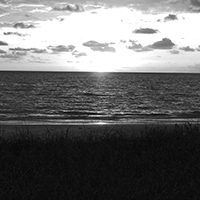 Rae Monroe is a short story writer and aspiring novelist. Born in the South, she has since lived all over the world. She has taken writing courses with Stanford University’s gifted youth program, and her short story “Marie” is pending publication with Banyan Literary and Arts Magazine.
Rae Monroe is a short story writer and aspiring novelist. Born in the South, she has since lived all over the world. She has taken writing courses with Stanford University’s gifted youth program, and her short story “Marie” is pending publication with Banyan Literary and Arts Magazine.

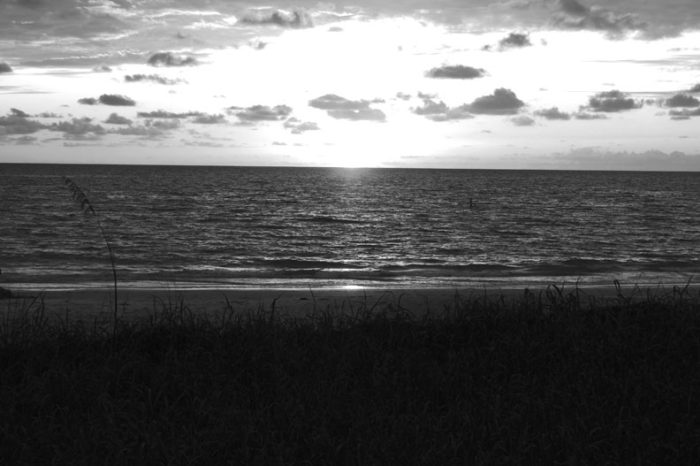
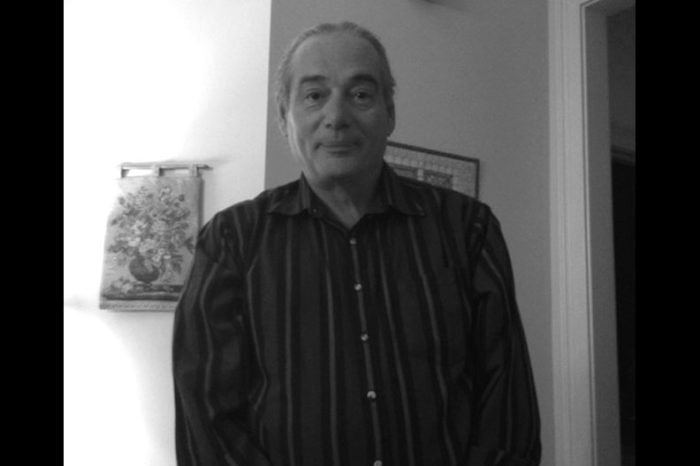
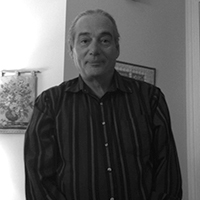 Cliff Saunders has an MFA in Creative Writing from The University of Arizona. His poems have appeared recently in Serving House Journal, Five 2 One, The Big Windows Review, Rumble Fish Quarterly, and Whale Road Review. He lives in Myrtle Beach, where he works as a freelance writer.
Cliff Saunders has an MFA in Creative Writing from The University of Arizona. His poems have appeared recently in Serving House Journal, Five 2 One, The Big Windows Review, Rumble Fish Quarterly, and Whale Road Review. He lives in Myrtle Beach, where he works as a freelance writer.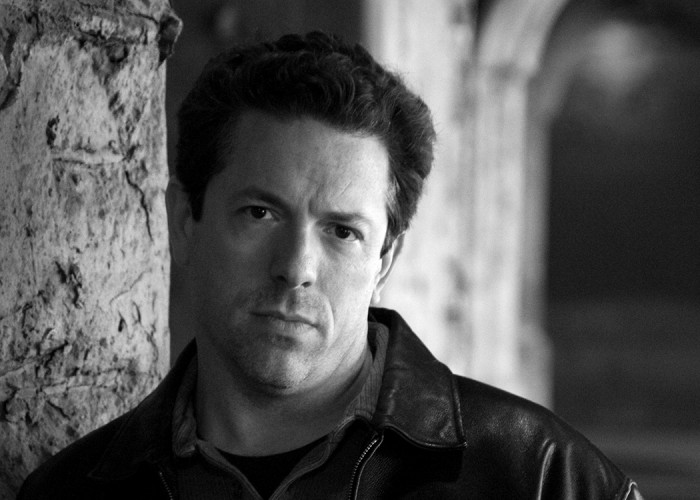
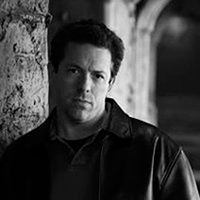 Richard Thomas is the award-winning author of seven books—Disintegration and Breaker (Penguin Random House Alibi), Transubstantiate, Staring into the Abyss, Herniated Roots, Tribulations, and The Soul Standard (Dzanc Books). His over 140 stories in print include Cemetery Dance (twice), PANK, storySouth, Gargoyle, Weird Fiction Review, Midwestern Gothic, Gutted: Beautiful Horror Stories, Qualia Nous, Chiral Mad (numbers 2-4), and Shivers VI. He was also the editor of four anthologies: The New Black and Exigencies (Dark House Press), The Lineup: 20 Provocative Women Writers (Black Lawrence Press) and Burnt Tongues (Medallion Press) with Chuck Palahniuk. He has been nominated for the Bram Stoker, Shirley Jackson, and Thriller awards. In his spare time he writes for Lit Reactor and is Editor-in-Chief at Gamut Magazine. For more information visit
Richard Thomas is the award-winning author of seven books—Disintegration and Breaker (Penguin Random House Alibi), Transubstantiate, Staring into the Abyss, Herniated Roots, Tribulations, and The Soul Standard (Dzanc Books). His over 140 stories in print include Cemetery Dance (twice), PANK, storySouth, Gargoyle, Weird Fiction Review, Midwestern Gothic, Gutted: Beautiful Horror Stories, Qualia Nous, Chiral Mad (numbers 2-4), and Shivers VI. He was also the editor of four anthologies: The New Black and Exigencies (Dark House Press), The Lineup: 20 Provocative Women Writers (Black Lawrence Press) and Burnt Tongues (Medallion Press) with Chuck Palahniuk. He has been nominated for the Bram Stoker, Shirley Jackson, and Thriller awards. In his spare time he writes for Lit Reactor and is Editor-in-Chief at Gamut Magazine. For more information visit 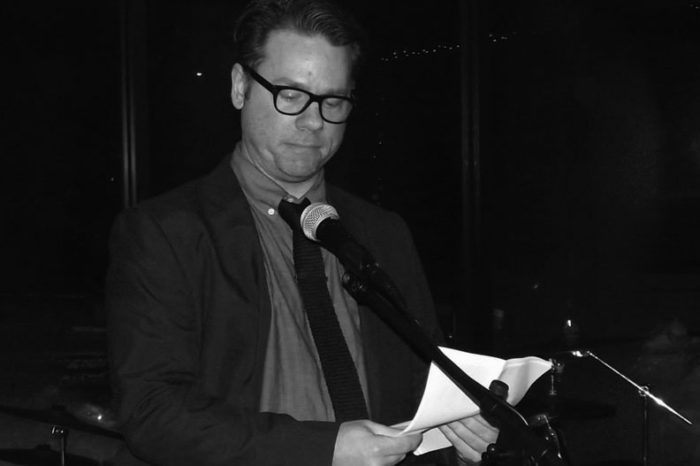
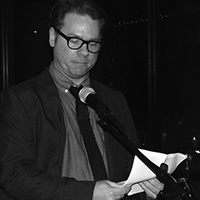 Joe Gianotti grew up in Whiting, Indiana, an industrial city five minutes from Chicago. He currently teaches English at Lowell High School. He is a proud contributor to Volume II of This is Poetry: The Midwest Poets. Among other poets, he represented Northwest Indiana in the 2014 Five Corners Poetry Readings. His work has been published in Former People: A Journal of Bangs and Whimpers, Steam Ticket: A Third Coast Review, The Tipton Poetry Journal, This, Yes Poetry, and other places. You can follow him on Twitter at @jgianotti10.
Joe Gianotti grew up in Whiting, Indiana, an industrial city five minutes from Chicago. He currently teaches English at Lowell High School. He is a proud contributor to Volume II of This is Poetry: The Midwest Poets. Among other poets, he represented Northwest Indiana in the 2014 Five Corners Poetry Readings. His work has been published in Former People: A Journal of Bangs and Whimpers, Steam Ticket: A Third Coast Review, The Tipton Poetry Journal, This, Yes Poetry, and other places. You can follow him on Twitter at @jgianotti10.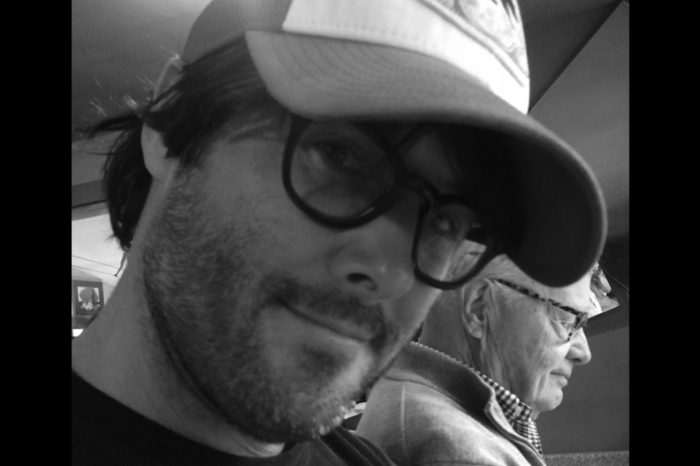
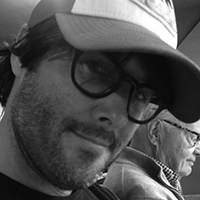 Alexander Carver’s stories have appeared in ZYZZYVA, Foliate Oak, The Satirist, The Southern Pacific Review, and Dark Matter. His story “Uber Trouble” was a prize winner in the Razor Literary Magazine short fiction contest. As well as being an author, he is also a produced playwright and screenwriter.
Alexander Carver’s stories have appeared in ZYZZYVA, Foliate Oak, The Satirist, The Southern Pacific Review, and Dark Matter. His story “Uber Trouble” was a prize winner in the Razor Literary Magazine short fiction contest. As well as being an author, he is also a produced playwright and screenwriter.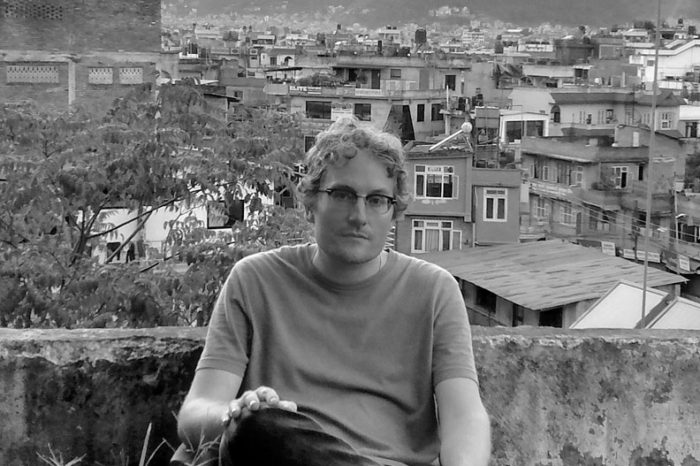
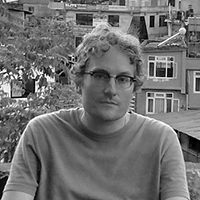 Brett Horton was born on the edge of Kansas City and grew up in a small oiltown called Ponca City, Oklahoma and the more metropolitan Wilmington, Delaware. At age 15, he began a music career playing the local venues and bars of Oklahoma and has since traveled and moved extensively. As a teenager, he worked as a paperboy, then later, in the circulation room of the newspaper. He has worked as a gas station clerk, a seasonal cook, a folk musician in an Alaskan vaudeville show, a foreign English teacher, a TV show host, a barista, and a free-lancer of various jobs just to name some. These days, he is making indie movies, playing music, throwing art shows and writing, writing, constantly on the go.
Brett Horton was born on the edge of Kansas City and grew up in a small oiltown called Ponca City, Oklahoma and the more metropolitan Wilmington, Delaware. At age 15, he began a music career playing the local venues and bars of Oklahoma and has since traveled and moved extensively. As a teenager, he worked as a paperboy, then later, in the circulation room of the newspaper. He has worked as a gas station clerk, a seasonal cook, a folk musician in an Alaskan vaudeville show, a foreign English teacher, a TV show host, a barista, and a free-lancer of various jobs just to name some. These days, he is making indie movies, playing music, throwing art shows and writing, writing, constantly on the go.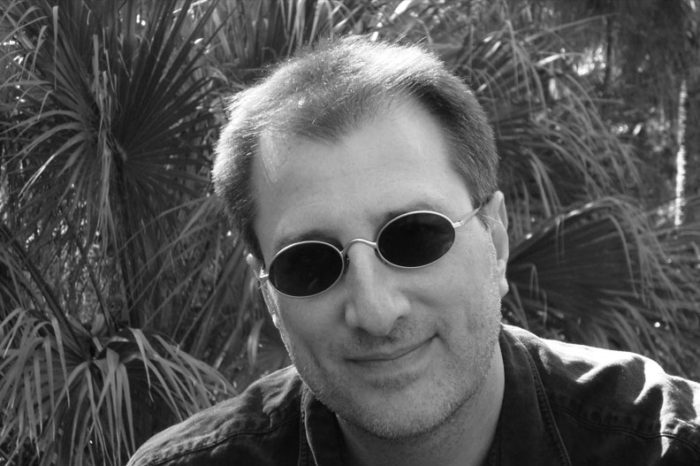
 Garth Pavell writes stories, poems and songs. His writing most recently appeared in Drunk Monkeys, Main Street Rag and Mudfish. Garth works for an international animal welfare nonprofit in New York City.
Garth Pavell writes stories, poems and songs. His writing most recently appeared in Drunk Monkeys, Main Street Rag and Mudfish. Garth works for an international animal welfare nonprofit in New York City.

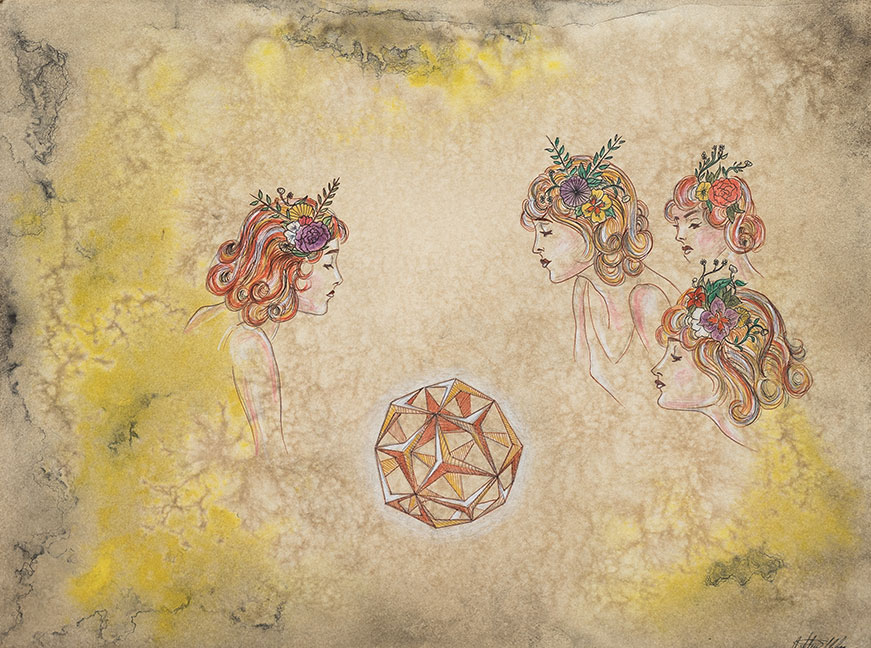






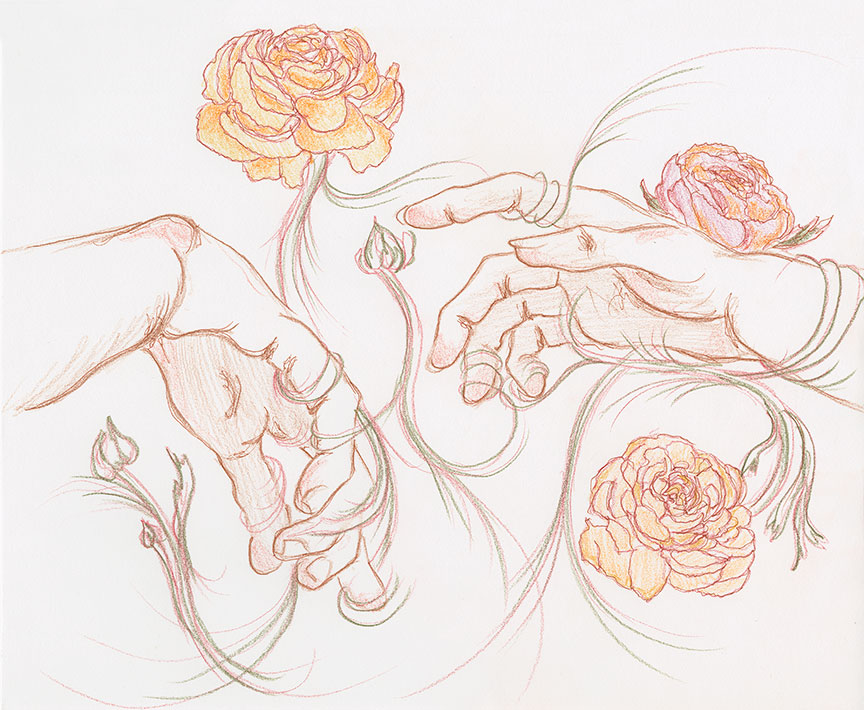


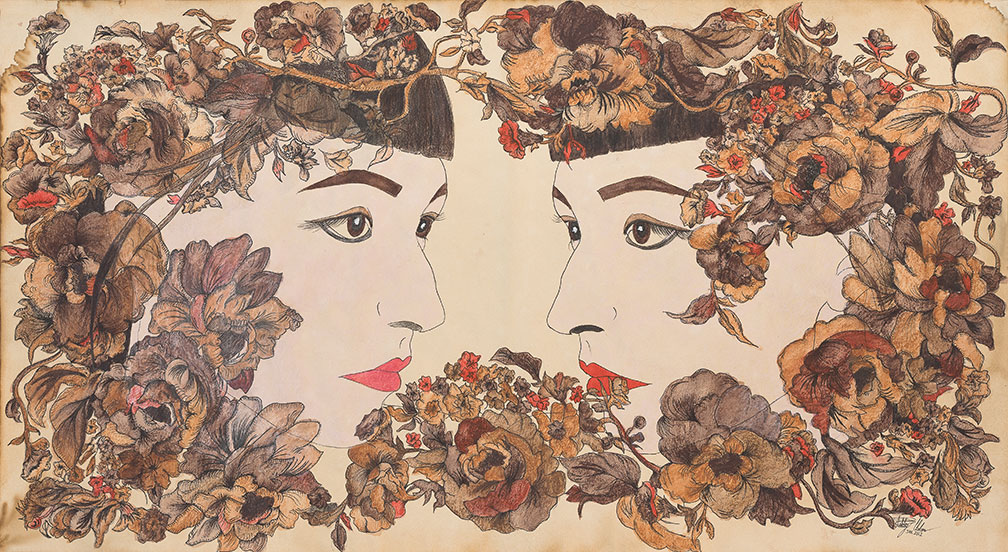
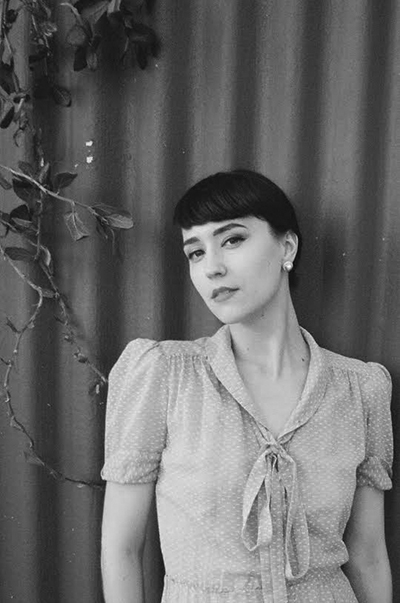 Ashley Urban’s childhood and adolescence were spent living deeply secluded in Pike national forest of Colorado. Because of this, she had to be creative with how she spent her time. Far removed from the nearest town and a normal social life, her greatest pleasures were spent in solitude, reading, creating art, and connecting with nature, being completely immersed within it for hours on end, every day. She was always intoxicated with its delicacies and dangers. Over time, she learned to relate with flora and fauna on a deeper level than with the people around her. To this day, her work and life are deeply influenced by the natural realm.
Ashley Urban’s childhood and adolescence were spent living deeply secluded in Pike national forest of Colorado. Because of this, she had to be creative with how she spent her time. Far removed from the nearest town and a normal social life, her greatest pleasures were spent in solitude, reading, creating art, and connecting with nature, being completely immersed within it for hours on end, every day. She was always intoxicated with its delicacies and dangers. Over time, she learned to relate with flora and fauna on a deeper level than with the people around her. To this day, her work and life are deeply influenced by the natural realm.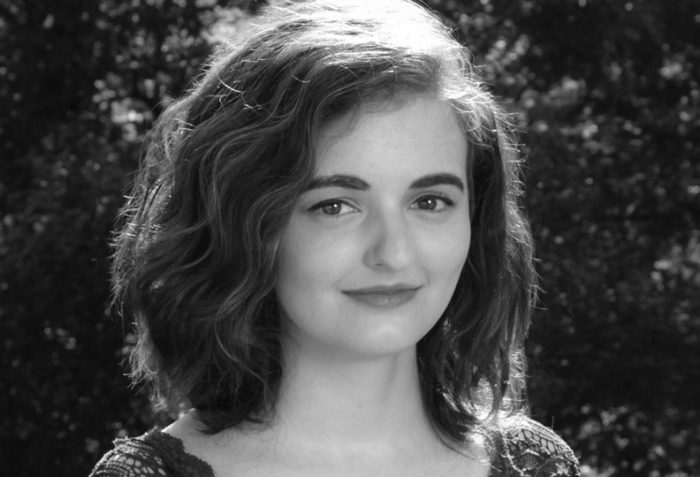
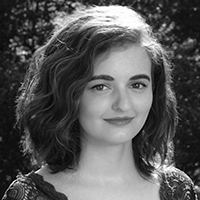 Briana Morgan is a thriller, crime, and horror writer who loves dark, suspenseful reads, angst-ridden relationships, and complicated characters. Her interest in Jay Gatsby scares her friends and family. You can find her in way too many places online, eating too much popcorn, reading in the corner, or crying about long-dead literary heroes. She currently resides somewhere near Atlanta, Georgia. For updates on her work, visit her website,
Briana Morgan is a thriller, crime, and horror writer who loves dark, suspenseful reads, angst-ridden relationships, and complicated characters. Her interest in Jay Gatsby scares her friends and family. You can find her in way too many places online, eating too much popcorn, reading in the corner, or crying about long-dead literary heroes. She currently resides somewhere near Atlanta, Georgia. For updates on her work, visit her website, 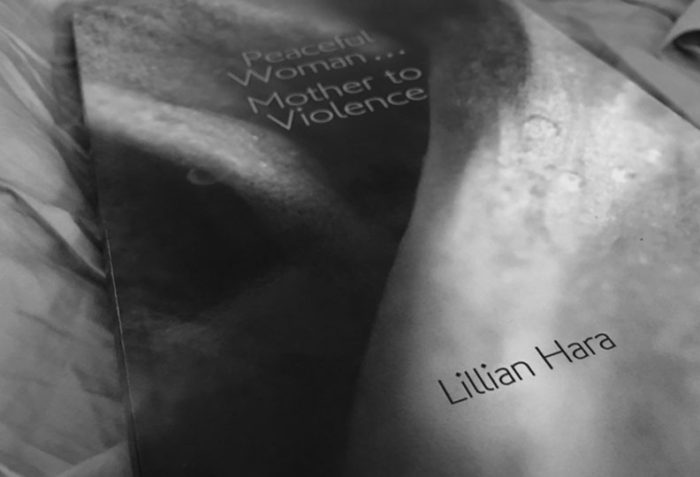

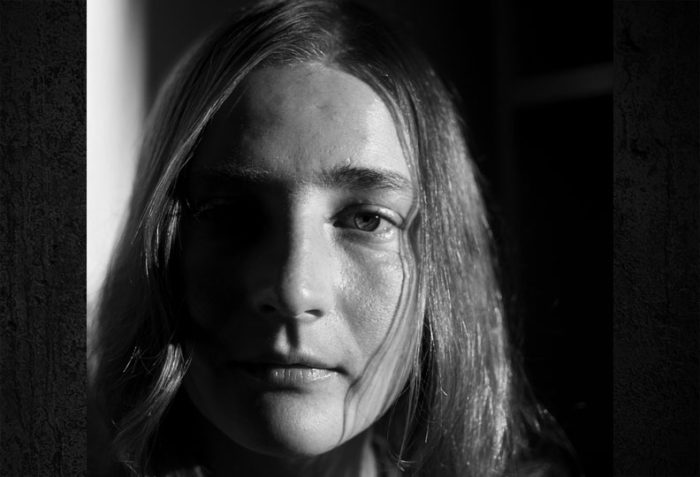
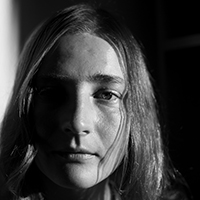 Margarita Serafimova was shortlisted for the Montreal International Poetry Prize 2017. She has two collections in Bulgarian: Animals and Other Gods (2016) and Demons and World (2017). Her work is forthcoming in Agenda, Trafika Europe, The Journal, Waxwing, Ink, Sweat and Tears, Futures Trading, Poetic Diversity, TAYO, The Punch, Aaduna, Three Drops from a Cauldron, The Transnational, Sea Foam Mag, SurVision, and has appeared in London Grip New Poetry, A-Minor, Minor Literatures, Noble / Gas, The Birds We Piled Loosely, Obra / Artifact, Ginosko, Dark Matter, Window Quarterly / Patient Sounds, Peacock Journal, Anti-Heroin Chic, Wild Word, Plum Tree Tavern, MOON Magazine, Outlaw Poetry, In Between Hangovers, MockingHeart Review, Renegade Rant and Rave, Tales From The Forest, Misty Mountain Review, Outsider Poetry, Heavy Athletics, The Voices Project, and Cent. Some of her work can be found at:
Margarita Serafimova was shortlisted for the Montreal International Poetry Prize 2017. She has two collections in Bulgarian: Animals and Other Gods (2016) and Demons and World (2017). Her work is forthcoming in Agenda, Trafika Europe, The Journal, Waxwing, Ink, Sweat and Tears, Futures Trading, Poetic Diversity, TAYO, The Punch, Aaduna, Three Drops from a Cauldron, The Transnational, Sea Foam Mag, SurVision, and has appeared in London Grip New Poetry, A-Minor, Minor Literatures, Noble / Gas, The Birds We Piled Loosely, Obra / Artifact, Ginosko, Dark Matter, Window Quarterly / Patient Sounds, Peacock Journal, Anti-Heroin Chic, Wild Word, Plum Tree Tavern, MOON Magazine, Outlaw Poetry, In Between Hangovers, MockingHeart Review, Renegade Rant and Rave, Tales From The Forest, Misty Mountain Review, Outsider Poetry, Heavy Athletics, The Voices Project, and Cent. Some of her work can be found at: 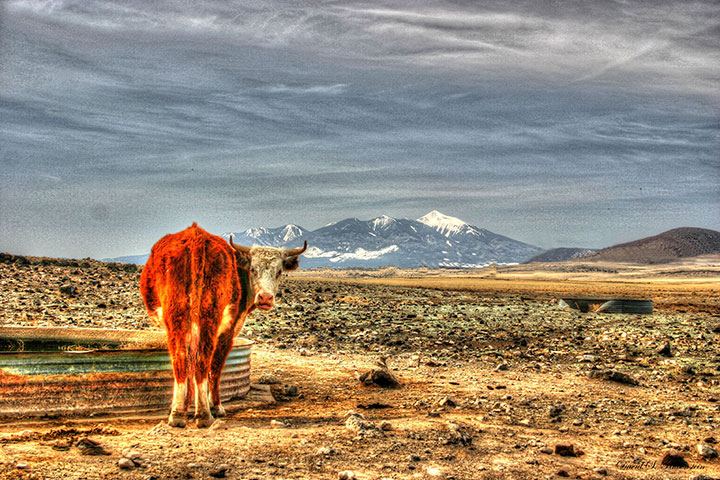




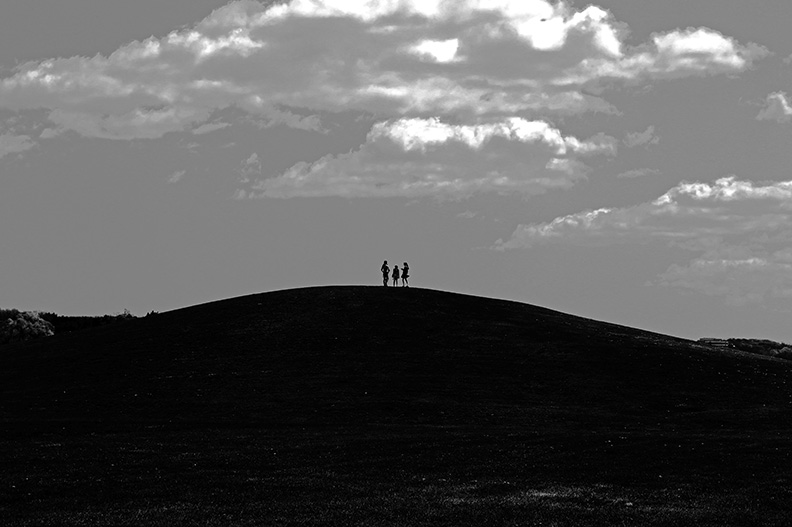
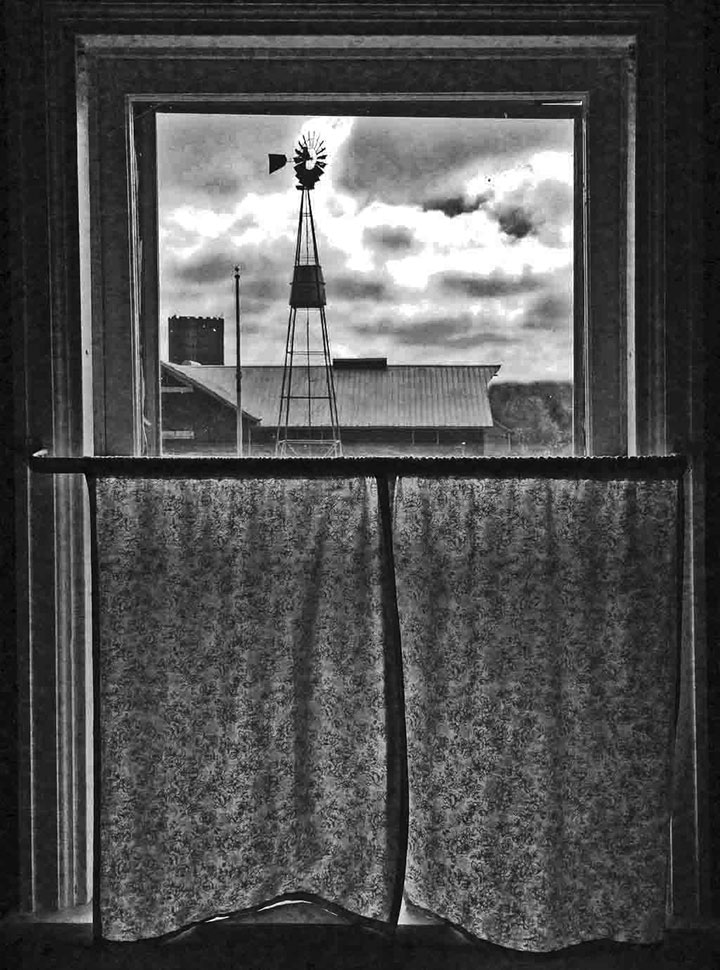
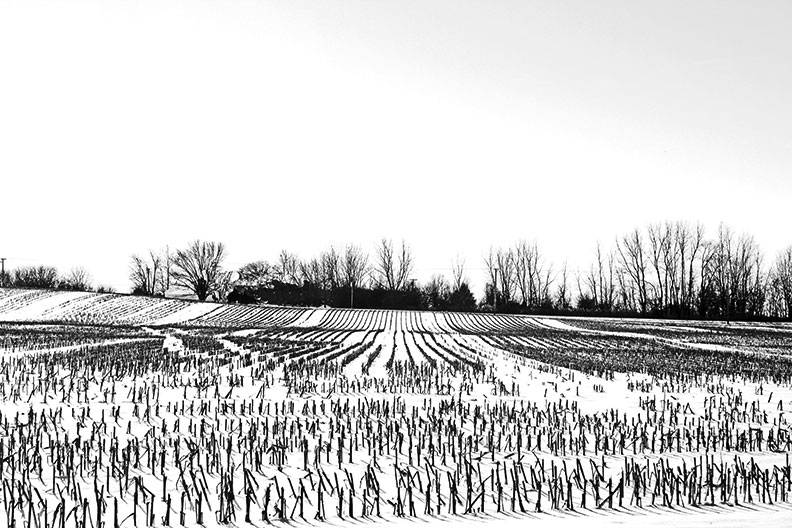

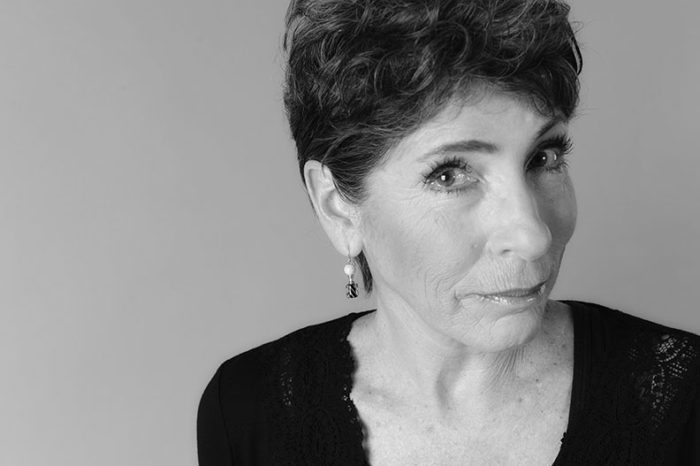
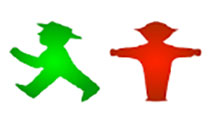
 Joan Frank (www.joanfrank.org) is the author of six books of literary fiction and an essay collection about the writing life. Her last novel, ALL THE NEWS I NEED, won the Juniper Prize for Fiction. Joan’s work has received many honors and awards, including the Richard Sullivan Prize and two ForeWord Reviews Book of the Year Awards. She lives in Northern California.
Joan Frank (www.joanfrank.org) is the author of six books of literary fiction and an essay collection about the writing life. Her last novel, ALL THE NEWS I NEED, won the Juniper Prize for Fiction. Joan’s work has received many honors and awards, including the Richard Sullivan Prize and two ForeWord Reviews Book of the Year Awards. She lives in Northern California.
 A three-time Pushcart Prize, Best of the Net, & Bettering American Poetry nominee, Lana Bella is an author of three chapbooks: Under My Dark (Crisis Chronicles Press, 2016), Adagio (Finishing Line Press, 2016), and Dear Suki: Letters (Platypus 2412 Mini Chapbook Series, 2016). She has had poetry and fiction featured in over 400 journals including, Acentos Review, Comstock Review, Expound, EVENT, Ilanot Review, and Notre Dame Review, among others. She also has work forthcoming in Aeolian Harp Anthology, Volume 3. Lana resides in the US and the coastal town of Nha Trang, Vietnam, where she is a mom of two far-too-clever, frolicsome imps. Her work can be found at:
A three-time Pushcart Prize, Best of the Net, & Bettering American Poetry nominee, Lana Bella is an author of three chapbooks: Under My Dark (Crisis Chronicles Press, 2016), Adagio (Finishing Line Press, 2016), and Dear Suki: Letters (Platypus 2412 Mini Chapbook Series, 2016). She has had poetry and fiction featured in over 400 journals including, Acentos Review, Comstock Review, Expound, EVENT, Ilanot Review, and Notre Dame Review, among others. She also has work forthcoming in Aeolian Harp Anthology, Volume 3. Lana resides in the US and the coastal town of Nha Trang, Vietnam, where she is a mom of two far-too-clever, frolicsome imps. Her work can be found at: 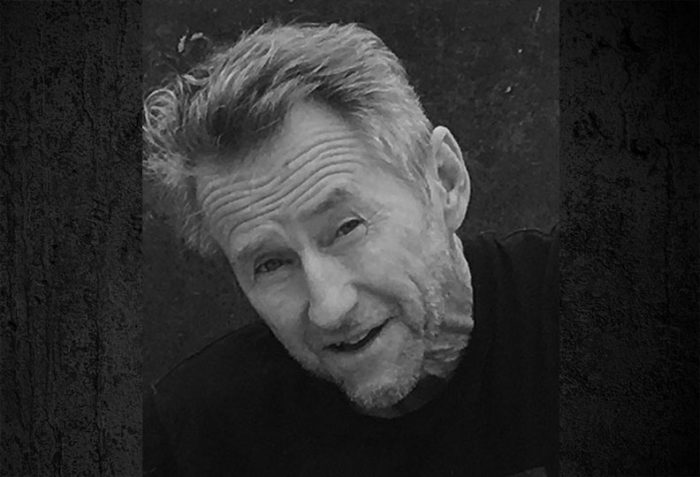
 In 2016, Richard C Rutherford had work accepted by Fiction Southeast, Stone Coast Review, Hypertext, Red Fez, The LA Review, Squalorly, and The Tishman Review. Upcoming in Visitant. For thirty-seven years he raised cattle at the edge of the desert. He supports local bookstores and reads DeLillo when he needs a dose of humility. He has daughters, so he’s a feminist. He has a large collection of stories.
In 2016, Richard C Rutherford had work accepted by Fiction Southeast, Stone Coast Review, Hypertext, Red Fez, The LA Review, Squalorly, and The Tishman Review. Upcoming in Visitant. For thirty-seven years he raised cattle at the edge of the desert. He supports local bookstores and reads DeLillo when he needs a dose of humility. He has daughters, so he’s a feminist. He has a large collection of stories.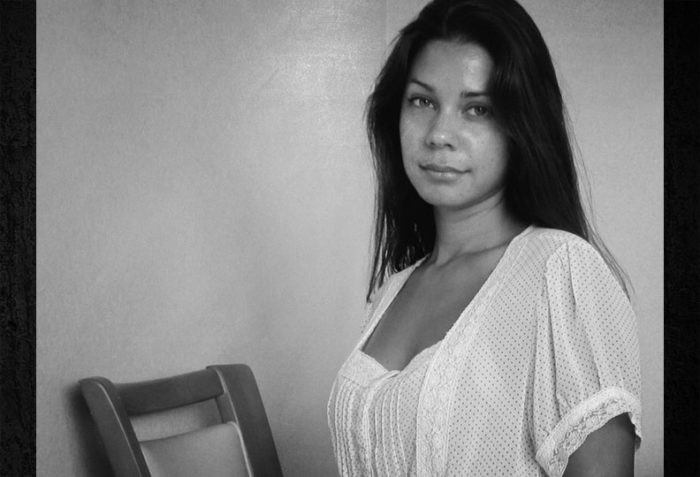
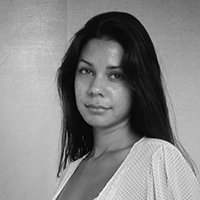 Elizabeth Bolton is a doctoral student at the University of Toronto where she studies writing and its effects on the mind. In addition to poetry, she writes narrative nonfiction, though in truth she finds genre distinctions rather meaningless.
Elizabeth Bolton is a doctoral student at the University of Toronto where she studies writing and its effects on the mind. In addition to poetry, she writes narrative nonfiction, though in truth she finds genre distinctions rather meaningless.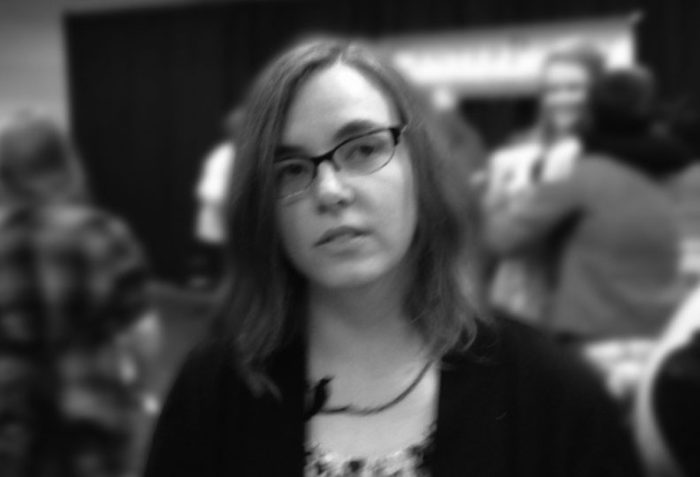
 Erin Smith is a writer, funeral director, and shiatsu therapist living in the Twin Cities. A transplant from the South, she’s seen her O’s lengthen in her fourteen years in Minnesota and has learned to love All Wheel Drive. When she’s not writing, she can be found with her cat, Chloe, on her lap. Erin has been published in Liars’ League NYC, Mount Hope Magazine, Here Comes Everyone, Smoky Blue Literary and Arts Magazine, Strange Mysteries, TWJ Magazine, Anotherealm and Mortuary Management Magazine. Find her at
Erin Smith is a writer, funeral director, and shiatsu therapist living in the Twin Cities. A transplant from the South, she’s seen her O’s lengthen in her fourteen years in Minnesota and has learned to love All Wheel Drive. When she’s not writing, she can be found with her cat, Chloe, on her lap. Erin has been published in Liars’ League NYC, Mount Hope Magazine, Here Comes Everyone, Smoky Blue Literary and Arts Magazine, Strange Mysteries, TWJ Magazine, Anotherealm and Mortuary Management Magazine. Find her at 
 James Mulhern has published fiction in many literary journals and received several accolades. Three stories were selected for different anthologies of best short fiction. In 2015, Mr. Mulhern was awarded a full-paid writing fellowship to study at Oxford University in the United Kingdom. That same year, a story was longlisted for the Fish Short Story Prize. He has also received other awards. His novel, Molly Bonamici, and his collection of short stories, Assumptions and Other Stories, received favorable critiques from Kirkus Reviews and are Readers’ Favorites. The short story, “Blindfolded,” is an excerpt from Aiden’s Secret, a paranormal mystery in progress, soon to be completed.
James Mulhern has published fiction in many literary journals and received several accolades. Three stories were selected for different anthologies of best short fiction. In 2015, Mr. Mulhern was awarded a full-paid writing fellowship to study at Oxford University in the United Kingdom. That same year, a story was longlisted for the Fish Short Story Prize. He has also received other awards. His novel, Molly Bonamici, and his collection of short stories, Assumptions and Other Stories, received favorable critiques from Kirkus Reviews and are Readers’ Favorites. The short story, “Blindfolded,” is an excerpt from Aiden’s Secret, a paranormal mystery in progress, soon to be completed.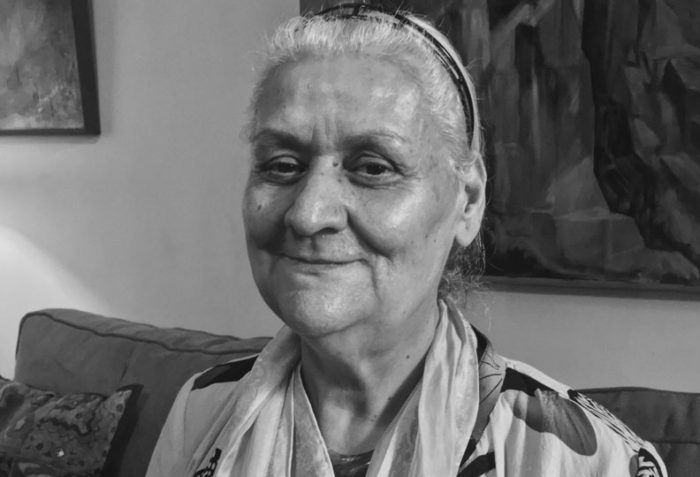
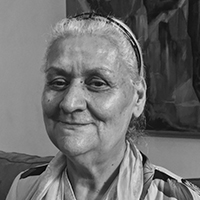 Maria Lopez is from the Andes Mountains in Colombia. She grew up in a little shack with no running water or electricity; she only had the moonlight to lead her at night. She could not read or write in Spanish as she had no education, so she had her work cut out for her when she moved to New York and had to learn English. Through working for Americans and free writing classes at the public library and colleges, she has learned to read and write English, better than she speaks it; her pronunciation leaves many Americans scratching their heads. Writing has become her newfound passion and priority.
Maria Lopez is from the Andes Mountains in Colombia. She grew up in a little shack with no running water or electricity; she only had the moonlight to lead her at night. She could not read or write in Spanish as she had no education, so she had her work cut out for her when she moved to New York and had to learn English. Through working for Americans and free writing classes at the public library and colleges, she has learned to read and write English, better than she speaks it; her pronunciation leaves many Americans scratching their heads. Writing has become her newfound passion and priority.











